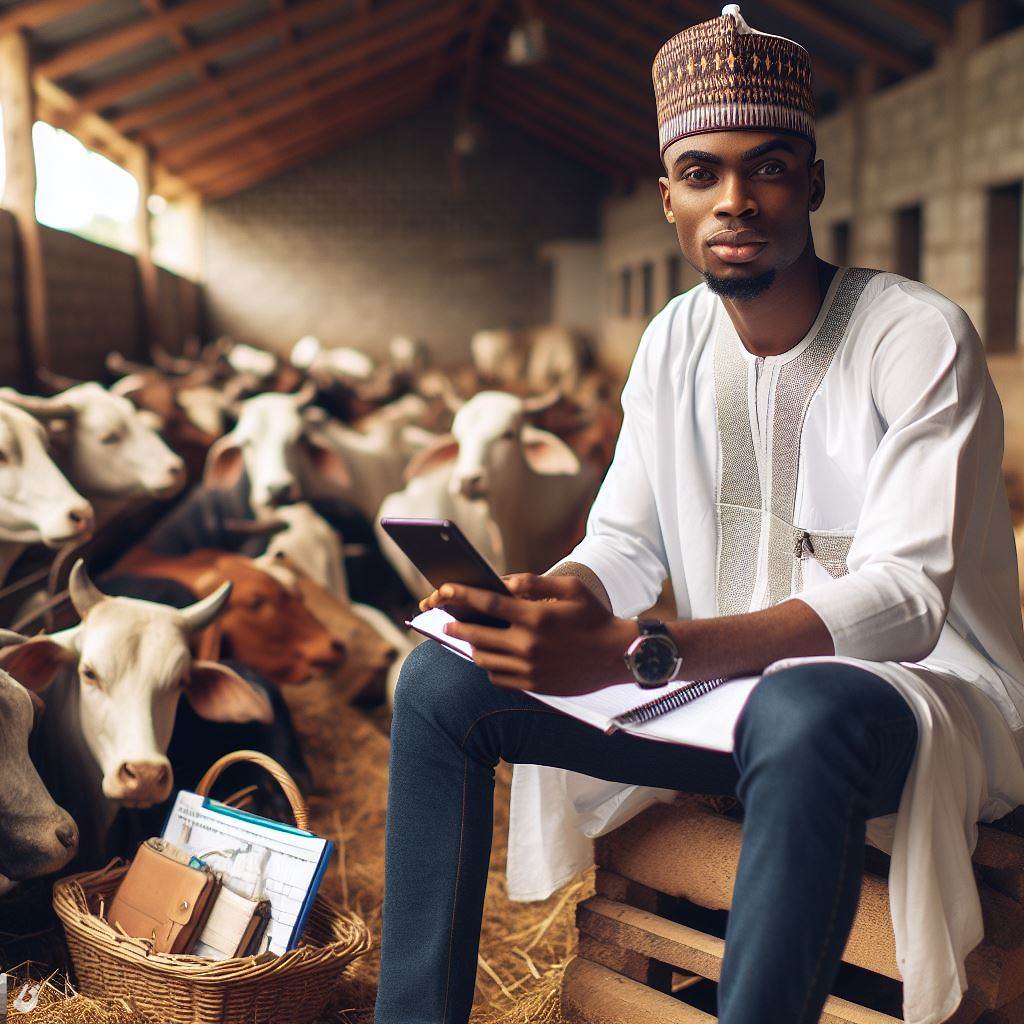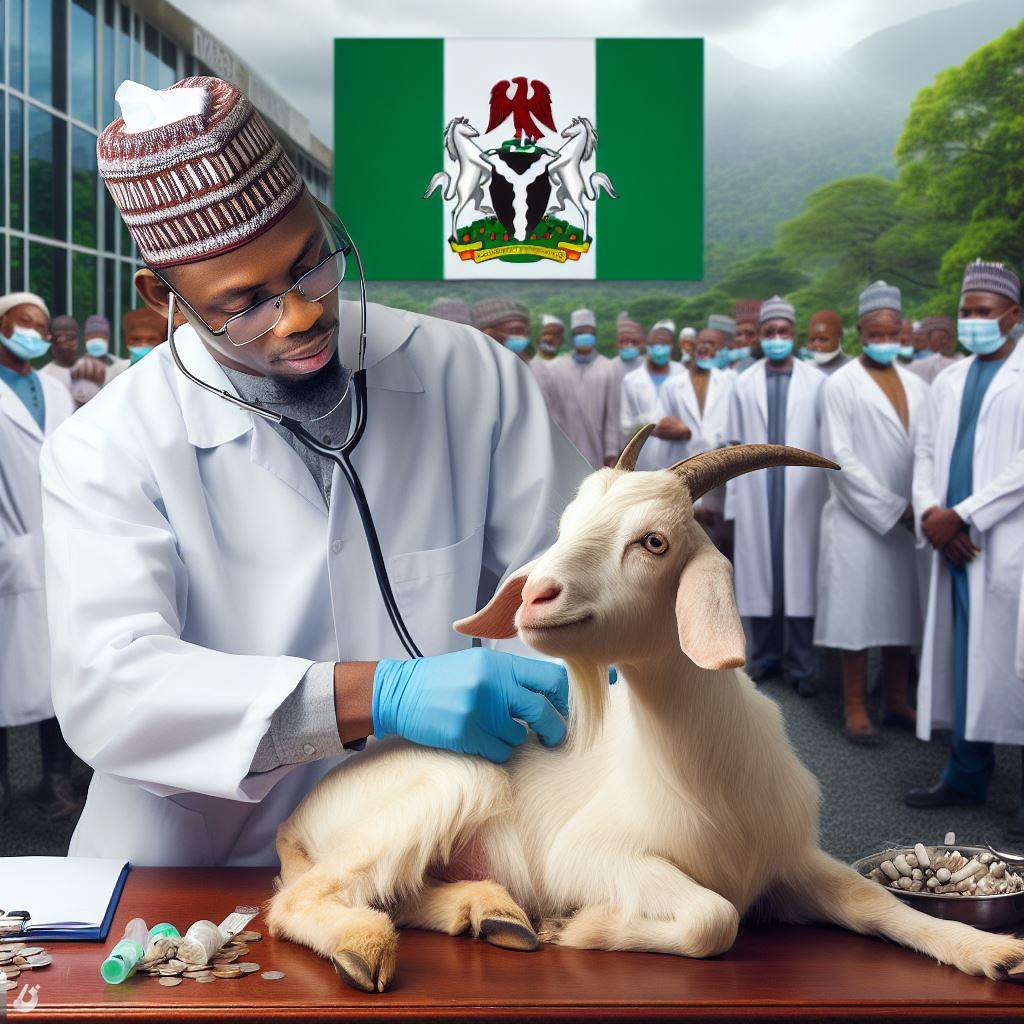Introduction
Traditional practices and modern genetics in Nigeria encompass cultural rituals and beliefs passed down through generations.
Modern genetics studies how genes impact our health, biology, and the transmission of traits.
This post examines the connection between traditional practices and modern genetics in Nigeria.
Traditional Practices in Nigeria
Definition and Examples of Traditional Practices
Traditional practices in Nigeria encompass diverse rituals, ceremonies, and customs passed down through generations. These include rites of passage, ancestral worship, and communal festivities.
Influence of Culture, Religion, and Customs on Traditional Practices
Culture, religion, and customs deeply shape traditional practices in Nigeria. From the colorful attire during ceremonies to the sacred dances reflecting spiritual beliefs, these elements intertwine seamlessly.
Role and Significance of Traditional Healers and Medicine
Traditional healers, revered for their ancestral knowledge, play a pivotal role in healthcare. Their herbal remedies and spiritual interventions form a vital part of medical practices, addressing ailments holistically.
Impact of Traditional Practices on Healthcare and Development in Nigeria
The impact of traditional practices on healthcare and development in Nigeria is substantial.
While traditional healing methods contribute to community well-being, they also pose challenges for the integration of modern medical approaches.
In rural areas, traditional practices often take precedence, affecting the adoption of modern healthcare.
The coexistence of these systems underscores the need for a balanced approach that respects cultural heritage while advancing healthcare standards.
Nigeria’s development is intricately linked to navigating this delicate balance.
Acknowledging and incorporating the strengths of both traditional practices and modern genetics is essential for fostering a holistic and sustainable healthcare system.
In fact, traditional practices in Nigeria reflect the rich tapestry of cultural heritage, with a profound impact on healthcare and development.
Striking a harmonious chord between tradition and modernity is imperative for a resilient and evolving society.
Read: Comparing Animal Health Curriculums: Nigeria vs Global
Introduction to Modern Genetics
Definition and explanation of modern genetics
Modern genetics plays a vital role in shaping our understanding of biology, heredity, and human health. It encompasses the study of genes, hereditary traits, and the variations that occur in organisms.
The field of genetics has undergone remarkable advancements in research and technology, leading to numerous breakthroughs and discoveries.
Advances in genetic research and technology
Advances in genetic research have revolutionized our understanding of inherited diseases and genetic disorders.
Scientists can now identify specific genes responsible for various conditions and develop targeted treatments.
Through techniques like gene therapy, where faulty genes are replaced or repaired, individuals suffering from genetic disorders can have improved quality of life.
Importance of understanding genetics for medical treatments and diagnosis
Additionally, understanding genetics holds immense importance for medical treatments and diagnosis.
By analyzing an individual’s genetic makeup, medical professionals can personalize treatment plans, optimizing their effectiveness and minimizing potential side effects.
Pharmacogenomics, a branch of modern genetics, combines genetic information with drug therapy to develop personalized medications tailored to an individual’s genetic profile.
Genetic counseling and its relevance in modern healthcare
Genetic counseling has emerged as a crucial component of modern healthcare.
It involves providing individuals and families with information about genetic disorders, inheritance patterns, and available testing options.
Genetic counselors help individuals comprehend their genetic risks, make informed decisions about reproductive choices, and manage the impact of inherited conditions on their lives.
The relevance of genetic counseling extends to preconception and prenatal care.
Couples planning to have children can undergo genetic testing to assess their risk of passing on inherited diseases or disorders.
The information gained from genetic counseling enables them to make educated choices regarding family planning and explore options like adoption or assisted reproduction techniques.
Moreover, genetic counseling offers support and guidance to individuals and families dealing with genetic conditions.
Counselors help them understand the nature of the disorder, its impact on health and quality of life, and available resources for management and support.
In short, modern genetics encompasses the study of genes, heredity, and variations in organisms.
It has witnessed significant advancements, leading to breakthroughs in understanding genetic disorders and developing personalized treatments.
Understanding genetics plays a critical role in medical treatments, diagnosis, and genetic counseling, empowering individuals to make informed decisions regarding their health and well-being.
Read: Nigerian Universities Leading in Animal Health Tech
The Link Between Traditional Practices and Modern Genetics in Nigeria
Traditional Remedies and Genetic Connections
In Nigeria, ancient healing practices intertwine with modern genetics, revealing links between traditional remedies and genetic traits or diseases.
Elders pass down knowledge of herbal concoctions believed to influence genetic predispositions.
Communities, rooted in tradition, explore the genetic roots of ailments through age-old healing rituals.
Adoption of Genetic Testing in Traditional Practices
As the world embraces genetic testing, Nigeria follows suit, integrating it into traditional practices.
Communities now engage in genetic research, seeking correlations between hereditary factors and traditional healing methods.
Transform Your Career with Expert Guidance
Get personalized mentorship consulting that’s tailored to your unique path. Our expert advice is actionable and exclusive.
Get StartedThis convergence fosters a holistic approach, blending ancestral wisdom with cutting-edge genetic insights.
Integration of Modern Genetics in Healing Methods
The synergy of traditional practices and modern genetics marks a paradigm shift in healthcare. Herbalists and geneticists collaborate to harness the power of both realms.
Scientific advancements elucidate the genetic underpinnings of traditional remedies, paving the way for refined, personalized treatments.
This fusion enhances the efficacy of healing methods, addressing ailments at their genetic core.
Challenges in Blending Traditions with Genetics
However, challenges persist in seamlessly merging tradition with modern genetics. Skepticism within traditional communities and the scarcity of resources hinder progress.
Bridging the gap between the two worlds requires navigating cultural nuances, ethical concerns, and ensuring equitable access to genetic advancements.
The journey toward integration demands a delicate balance between preserving heritage and embracing the transformative potential of modern genetics.
In the heart of Nigeria, the dance between tradition and innovation unfolds, revealing a rich tapestry where ancient practices and cutting-edge genetics harmonize to shape the future of healthcare.
Read: Key Challenges in Nigerian Animal Health Education
Case Studies and Examples
Traditional Practices and Genetic Conditions
In Nigeria, specific traditional practices intertwine with genetic conditions, shaping the health landscape profoundly. Rituals, often rooted in cultural heritage, play a pivotal role in health outcomes.
Research Unveiling the Nexus
Studies underline the intricate relationship between traditional practices and genetics. Research indicates a significant impact on the prevalence of genetic conditions among populations engaging in certain traditional rituals.
Bridging the Gap: Success Stories
A beacon of progress emerges as modern genetics seamlessly integrates into traditional healing practices.
Success stories narrate instances where scientific advancements align with age-old wisdom, yielding holistic healthcare solutions.
In southwestern Nigeria, the Osun-Osogbo festival stands out. This annual event, deeply rooted in Yoruba traditions, celebrates the river goddess Osun.
Intriguingly, genetic research has identified a higher prevalence of sickle cell trait among participants, shedding light on the genetic implications of cultural practices.
A study conducted in the northern region explores the impact of scarification on the genetic predisposition to keloid formation.
The research illuminates a direct correlation, emphasizing how cultural practices influence genetic expressions, providing a new dimension to healthcare considerations.
In the realm of success stories, the integration of modern genetic testing in traditional midwifery practices has garnered attention.
By combining traditional birthing methods with genetic screening, communities experience improved maternal and neonatal health outcomes.
This amalgamation showcases the harmony achievable between tradition and modernity.
These case studies and examples underscore the intricate dance between tradition and genetics in Nigeria.
They illuminate the need for a nuanced approach, where modern science collaborates with deep-rooted traditions to foster comprehensive healthcare solutions.
Read: Postgraduate Studies in Agronomy in Nigeria: A Guide

Ethical Considerations
Balancing cultural beliefs and scientific advancements
- The intersection between traditional practices and modern genetics in Nigeria raises ethical questions.
- A delicate balance is required to respect cultural beliefs while embracing scientific advancements.
- Striking this balance ensures that traditional practices are not dismissed as irrelevant or superstitious.
- Simultaneously, it allows for the incorporation of modern genetics to improve healthcare outcomes.
- Engaging local communities and traditional leaders in discussions is essential to navigate this balance.
- Educational campaigns can promote awareness and bridge the gap between cultural beliefs and scientific understanding.
- Respecting and valuing diverse perspectives is crucial for the success of any genetic research initiative.
- Collaborating with cultural experts can guide researchers in understanding and respecting local customs and traditions.
- Ultimately, the aim is to create an inclusive and culturally sensitive approach to genetic research in Nigeria.
Informed consent and respect for traditions
- Informed consent is a fundamental principle that must be upheld in genetic research.
- Researchers must ensure that participants fully understand the purpose, risks, and benefits of the study.
- Respecting traditions means providing information in culturally appropriate ways and local languages.
- Acknowledging language barriers and providing translation services is necessary to obtain truly informed consent.
- Consent forms should be clear, concise, and easily understandable to ensure participants can make informed decisions.
- Researchers should engage with community leaders to help educate community members about the research process.
- Open and transparent communication builds trust, ensuring that individuals feel comfortable participating.
- Respecting traditions helps foster a sense of ownership and involvement in the genetic research process.
- Researchers must also consider potential power imbalances between themselves and the communities they study.
- Empowering communities by involving them in the research design and decision-making processes is essential.
Ethical concerns in genetic research and data collection from traditional practices
- Data collection in genetic research from traditional practices requires careful ethical considerations.
- Preserving confidentiality and privacy is vital to protect participants’ rights and maintain trust.
- Researchers must ensure that data is anonymized and stored securely to avoid potential misuse.
- Using data for purposes beyond the original research should only be done with explicit participant consent.
- Genetic research involving traditional practices should address potential stigmatization of individuals or communities.
- Researchers must be aware of the cultural sensitivity surrounding genetic conditions or traits.
- Proactive measures should be taken to prevent any harm or discrimination resulting from genetic findings.
- Conducting genetic research ethically includes providing follow-up support and counseling for participants.
- Long-term partnerships with local communities can enhance accountability and ethical oversight.
- Incorporating community feedback and addressing concerns throughout the research process is essential.
In essence, ethical considerations play a crucial role in the link between traditional practices and modern genetics in Nigeria.
Balancing cultural beliefs and scientific advancements, ensuring informed consent and respect for traditions, and addressing ethical concerns in data collection are key components for ethical genetic research.
By engaging communities, collaborating with cultural experts, and fostering transparency, Nigeria can navigate this delicate intersection in a way that respects traditions while embracing the potential benefits of modern genetics.
Implications and Future Directions
Potential Benefits of Combining Traditional Practices and Modern Genetics
In marrying age-old wisdom with cutting-edge science, Nigeria stands at the forefront of a medical revolution.
Integrating traditional healing methods with modern genetic research offers a promising synergy.
This fusion holds the potential to unveil novel treatment modalities, tapping into the rich pharmacopeia of traditional remedies.
By exploring the genetic underpinnings of traditional medicine, researchers can identify and isolate beneficial compounds, creating a bridge between ancient wisdom and contemporary healthcare solutions.
The Importance of Education and Awareness in Bridging the Gap
Realizing the potential of this synthesis hinges on widespread awareness and education.
Bridging the gap between traditional healers and geneticists necessitates a comprehensive understanding among both communities.
Establishing educational programs that foster mutual respect and collaboration is paramount.
By enlightening traditional practitioners about the intricacies of modern genetics and simultaneously integrating traditional knowledge into mainstream medical education, a harmonious coexistence can be cultivated.
Collaborative Efforts Between Traditional Healers and Geneticists for Improved Healthcare
The future of healthcare in Nigeria relies on collaborative efforts. Traditional healers and geneticists must join forces, breaking down silos that have separated their realms for generations.
Joint research initiatives, workshops, and conferences can facilitate an exchange of expertise, fostering a shared understanding of health and healing.
This synergy can catalyze the development of personalized medicine, tailoring treatments based on an individual’s genetic makeup and traditional health practices.
Through collaboration, a unified approach to healthcare can emerge, providing the populace with holistic and culturally sensitive medical solutions.
Basically, the marriage of traditional practices and modern genetics holds immense promise for Nigeria’s healthcare landscape.
To unlock these benefits, a concerted effort towards education, awareness, and collaboration is imperative, laying the foundation for an integrated and effective healthcare system.
Discover More: Funding & Support for Agri-Coop Studies in Nigerian Schools
Conclusion
In Nigeria, the intertwining of traditional practices and modern genetics is undeniable. Ancient customs shape genetic diversity.
The infusion of ancestral wisdom into modern genetic research showcases a harmonious blend of the old and the new.
Traditional healing methods, deeply rooted in cultural practices, offer invaluable insights into genetic susceptibilities within diverse populations.
Understanding how traditional practices influence genetic traits is crucial for comprehensive healthcare strategies that cater to Nigeria’s unique genetic landscape.
The intricate web connecting tradition and genetics demands more exploration. Unlocking this link could revolutionize healthcare, yielding tailored solutions.
Researchers must delve deeper into the rich tapestry of Nigeria’s traditional practices to unveil hidden genetic gems.
The potential benefits are immense—personalized medicine, disease prevention strategies, and improved public health programs tailored to genetic predispositions.
Preserving Nigeria’s cultural heritage amid scientific advancements is paramount. Cultural roots provide stability, a compass guiding genetic research ethically.
While embracing modern genetics, it’s crucial to tread respectfully, acknowledging and preserving the indigenous knowledge that forms the nation’s genetic foundation.
The synthesis of tradition and genetics isn’t just a scientific pursuit; it’s a celebration of identity, a fusion of the past and future.
The link between traditional practices and modern genetics in Nigeria encapsulates a holistic approach to healthcare—a symbiosis of time-honored wisdom and cutting-edge science.




